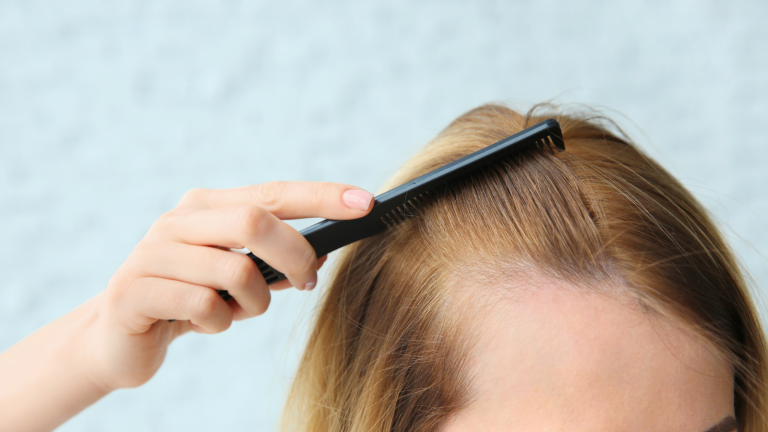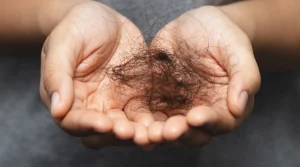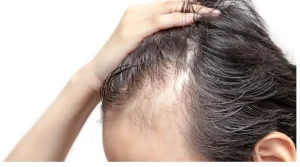Hair loss is a common problem that can have a number of reasons, but one that is frequently disregarded is stress. Many people struggle with thinning hair or bald patches and are surprised to discover that stress could be a significant contributor. Knowing the connection between stress and baldness, and effective stress management might be vital to improving hair health.
Your journey begins with a complimentary consultation. During this session, one of our experts will evaluate your hair type, assess your skin condition, review your current medications, and gather a general health history. If you are deemed a suitable candidate, we will either start your treatment immediately or schedule it for a later date. Laser Hair Removal in Bergen County, NJ Say Goodbye to Shaving, Waxing & Plucking! We offer top-quality hair removal and reduction services in Fair Lawn, New Jersey.
What You Should Know About Hair Loss and Chronic Stress
Hair loss can stem from numerous factors, including genetics, hormonal changes, and nutritional deficiencies. Chronic stress has emerged as a significant player in hair thinning and loss. Stress sets off a series of chemical changes in the body, remarkably increasing cortisol levels, which can disrupt the normal hair growth cycle. This disruption often results in Hair that prematurely enters the resting phase and falls out is known as telogen effluvium more quickly.
How Stress Affects Hair Health
When your body is under stress, it produces higher cortisol levels and other stress hormones. This hormonal imbalance can affect hair follicles, leading to changes in the hair growth cycle. In a regular cycle, hair grows, rests, and then falls out to make way for new growth. Stress can push more hair follicles into the resting phase, increasing shedding and noticeable thinning. Additionally, stress can exacerbate existing hair loss conditions, such as androgenetic alopecia (pattern baldness).
How to Fix Hair Loss Caused by Stress
Addressing stress-related hair loss involves tackling the root cause of the problem—stress itself. Here are some strategies to help manage and reduce stress, potentially improving hair health:
1. Healthy Lifestyle Choices: Incorporate a well-balanced diet rich in nutrients and vitamins that promote healthy hair, such as iron, zinc, and vitamins A and D. Regular exercise also helps reduce stress levels by releasing endorphins, the body’s natural mood lifters.
2. Adequate Sleep: Ensure that you have seven to nine hours a night of sound sleep Poor sleep can increase stress and exacerbate hair loss.
3. Relaxation Techniques: Meditation, deep breathing exercises, and yoga can help manage stress and promote well-being.
4. Professional Help: If managing stress is challenging, consider speaking to a mental health professional. Counseling or therapy can give useful coping mechanisms for stress effectively.
Can Hair Grow Back After Stress?
Yes, hair can grow back after stress if the underlying stress is managed effectively. Once the stress is reduced or eliminated, the hair growth cycle can return to normal. However, it’s essential to be patient, as hair growth is a slow process and can take several months to become noticeable.
Treatments for Hair Loss from Stress
If managing stress alone doesn’t seem to be enough, various treatments can help with stress-induced hair loss:
1. Topical Treatments: Minoxidil is a standard topical hair growth-promoting therapy that is sold over-the-counter.
2. Prescription Medications:Finasteride is a medicine that is prescribed to treat hair loss by preventing the hormone dihydrotestosterone (DHT).
3. Hair Restoration Procedures: Hair transplants can be considered for more severe cases. Speak with a doctor or hair expert about the best treatment plan for your situation.
4. Nutritional Supplements: Supplements like biotin, collagen, and saw palmetto may support hair health, though A healthcare professional must be consulted before beginning any new supplement regimen.
Tips for Managing Stress
1. Regular Exercise: Enjoy physical activities to help reduce stress levels and improve overall mood.
2. Healthy Eating: Incorporate various nutrient-dense foods into your diet to support mental and physical health.
3. Social Support: Be in the company of loving friends and relatives. Sharing your feelings can reduce the burden of stress.
4. Time Management: Organize and prioritize tasks to avoid feeling overwhelmed.
5. Hobbies and Leisure: Make time for activities that bring you joy and relaxation.
Conclusion
Stress can profoundly impact hair health, leading to significant hair loss if not managed properly. Understanding how stress affects hair growth and proactively managing your stress can enhance your health and well-being. Adopting a balanced lifestyle, seeking professional help, and utilizing appropriate treatments can make a noticeable difference. Remember, managing stress is not just about enhancing hair health—it’s about achieving a better quality of life. Take control of stress today and set the stage for a healthier, more vibrant tomorrow.





